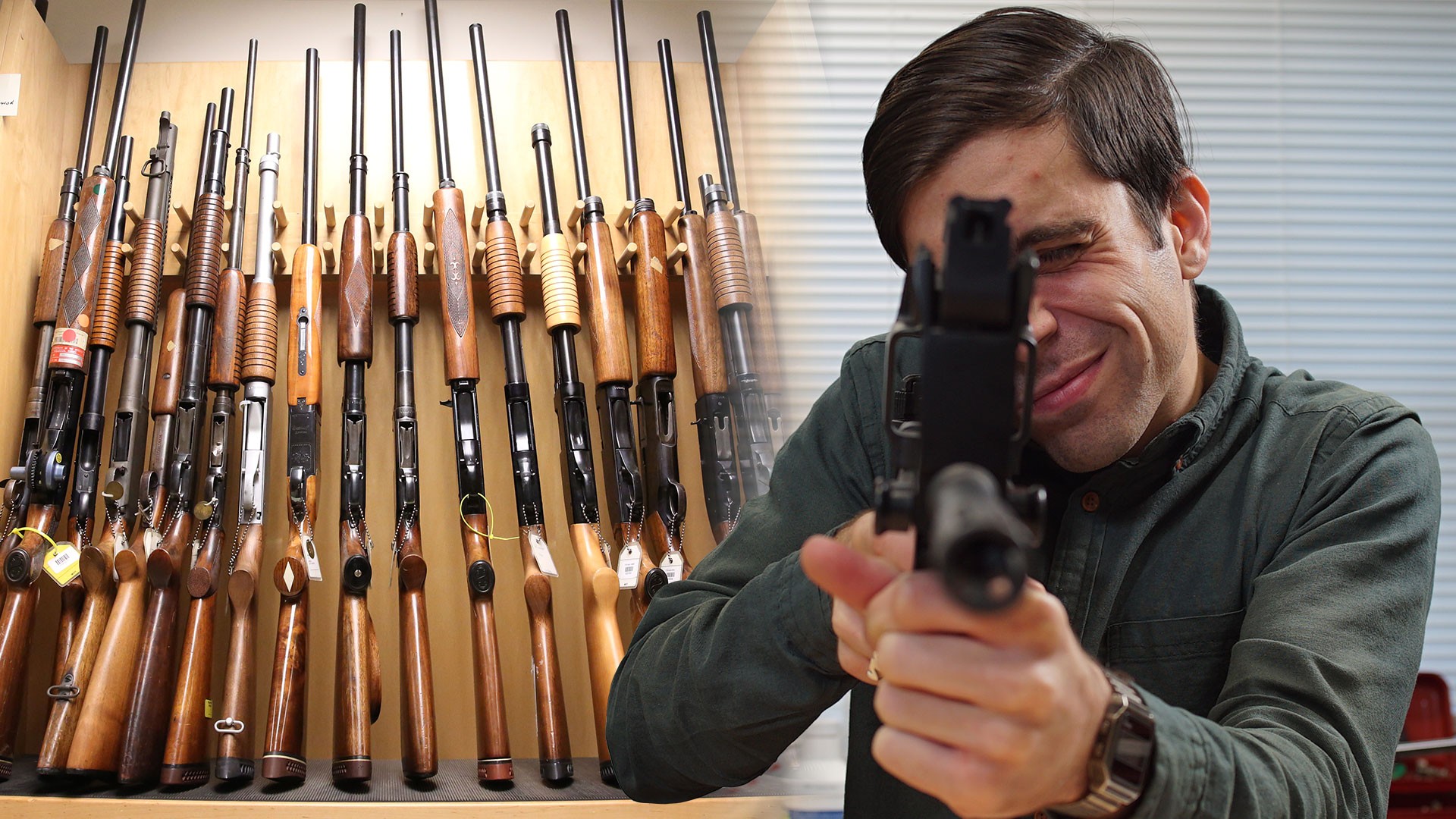Image via Flickr user William Wootton.
It's been over a month since Stephen Paddock opened fire on a music festival in Las Vegas, Nevada, leaving at least 59 people dead, including himself, and more than 540 injured. The magnitude of the shooting served as a glaring reminder of major firearm policy gaps and loopholes. Yet the Trump administration hasn't been shy in reiterating their disinterest in using the deadliest shooting in modern American history as a jumping off point for policy discussion."There's a time and place for a political debate, but now is the time to unite as a country," White House press secretary Sarah Huckabee Sanders said at a press briefing following the shooting. "There is currently an open and ongoing law enforcement investigation. A motive is yet to be determined. And it would be premature for us to discuss policy when we don't fully know all the facts, or what took place last night."For many, the administration's response wasn't surprising, especially considering President Trump's close relationship with the NRA and other firearm support groups."That's the thing about this administration. Part of us might be shocked by the administration's actions, but they're in line with everything they've said," David Chipman, Senior Policy Advisor at the Giffords Law Center, and a former special agent with the Bureau of Alcohol, Tobacco, Firearms and Explosives told VICE Impact. "The gun industry today is marketing their products based on the fear they're selling to the public that absent of guns carried at all times, they're not safe. So that's the difficult thing that we're up against."While the administration has taken little concrete action to combat mass gun violence at the federal level, members of the Senate and House have begun pushing forward legislation in the wake of this month's tragedy. Still, nothing happened after Newtown when a gunman killed 20 children and six staff members of Sandy Hook Elementary School in 2012. Nothing happened after House Majority Whip Steve Scalise was shot when a gunman opened fire on Republican members of Congress in June -- and even Scalise himself still opposes gun control. So who knows if there will be any real action taken now.Here are a few policy points to keep your eye on as the conversation moves forward.
Check out more videos from VICE:
As in the device that allows a semi-automatic rifle to mimic the firing capacity of an automatic rifle. 12 bump stock devices were found on firearms in Paddock's hotel room following the shooting massacre, and have been largely associated with the high injury and death tolls from the October 1 shooting.Concerns have been so severe that the topic of bump stock has even triggered the first bipartisan response to the shooting. On October 10, Republican Congressman Carlos Curbelo of Florida and Massachusetts Democrat Seth Moulton introduced a House bill to ban the manufacturing, sale and possession of bump stock and any other mechanisms that increase the rate of fire of a semiautomatic rifle. Democratic Senator Dianne Feinstein introduced a similar bill on October 4.But bipartisan support in the House and a strong push from Democrats in the Senate may not be enough to keep these bills alive. The Daily Beast reported that Hill aides see no indication that the House Judiciary Committee will take on Curbelo's bill, and the Senate may run into a similar situation, even if Democrats succeed in beefing up bipartisan support in the upper chamber.Legislative efforts were derailed earlier this month when the NRA and Republicans including Paul Ryan suggested that the Bureau of Alcohol, Tobacco, Firearms and Explosives should take on bump stock through executive action, sidestepping legislative plans. This is bad news for regulation advocates, since the ATF Association has said the bureau doesn't actually have the legal authority to regulate firearm accessories. A shift to ATF also opens up bump stock regulation to lengthy legal battles, and the possibility of being overturned by future administration.Both the House and Senate have introduced bills under the Keep America Safe Act title, which seeks to prevent the possession of devices holding more than 10 rounds of ammunition.Senator Bob Menendez, who introduced the Senate bill, described magazines, belts, and other feeding devices that hold 11 or more rounds as being designed to shoot "en masse." He also noted that Paddock was found to have hundreds of rounds of ammunition in the hotel room he had rented before carrying out the shooting in Las Vegas.If it got the votes to pass, the Keep America Safe Act would not regulate large capacity ammunition feeding devices purchased before the bill's enactment date.This month's shooting has revived the long standing call to ban the sale of firearms to people known or suspected as terrorists under the Attorney General's judgement.Republican Congressman Pete King introduced the Denying Firearms and Explosives to Dangerous Terrorists Act of 2017 to the House on October 12, and Congressman Lee Zelden, another Republican from New York, introduced the similarly focused Protect America Act of 2017 on the 10th. The acts specify both domestic and international terrorists.This isn't the first time anti-terrorism legislation has popped up after a mass shooting. Last year, the Senate voted on two bills to ban the sale of guns to people on the federal terrorist watchlist after the shooting at Orlando's Pulse nightclub. Neither of the bills passed.We're talking gaps in background checks, online sales, unmonitored purchasing and more. A handful of single party bills have come out in both the House and the Senate, but most are likely to face a serious uphill battle.H.B. 4025 wants to require Federal firearms licensees (aka, the people selling guns) to report the sale of two or more guns to the same person over a five day period. Gun sellers are currently required to report the sale of two or more pistols or revolvers, but this law would expand the ruling to cover the multiple sale of any type of handgun.This will be a tough push for some Second Amendment advocates who say the legal purchasing of guns doesn't require monitoring, while gun control advocates say this could help law enforcement prevent another stockpiling situation like the one seen in Las Vegas.Also in the House, Congressman Raja Krishnamoorthi, a Democrat from Illinois is calling for a three-day waiting period before receiving a newly purchased firearm. While the bill includes some exceptions, it's likely to be an almost impossible sell in the Republican-controlled House.In the Senate, Democrats are trying again to get their Background Check Completion Act passed. An identical bill was introduced to the House in July, and a similar bill failed to pass the Senate in 2015. The bill would prohibit the sale of firearms prior to the formal completion of a background check, and has received support from progressives like Elizabeth Warren, Kirsten Gillibrand, and Dianne Feinstein.Regardless of where you fall on the political spectrum, reach out to your elected officials and tell them how you feel about gun control laws. Legislation doesn't move itself and this is an issue you're concerned about, lawmakers from the local to national level need to hear from you.Gun policy that impacts your hometown is often determined on a local level, so make sure you are also registered to vote in local elections. Many U.S. cities will be choosing new mayors this fall.
Advertisement
Advertisement
Check out more videos from VICE:

1. Banning Bump Stocks
Advertisement
2. Regulating Large Capacity Ammunition Feeding Devices
3. Denying Guns to Suspected Terrorists
Advertisement
